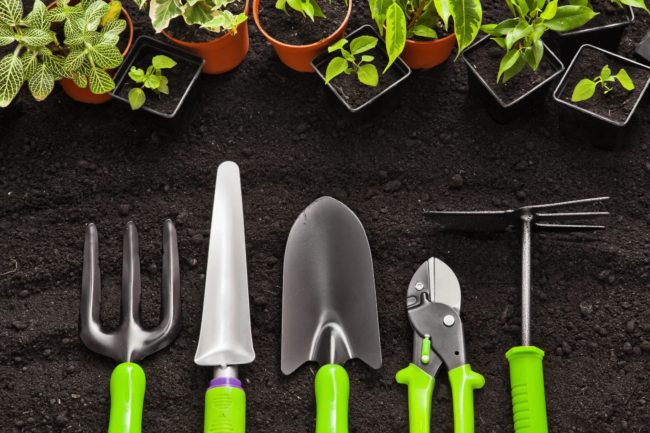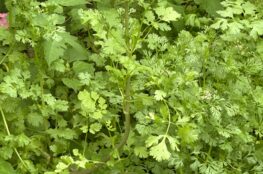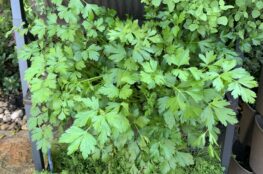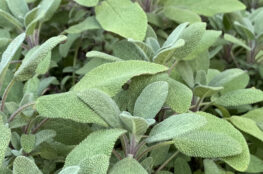Many of you know I am an avid gardener. I keep herbs year round and my parsley always looks like a big bush! If you spend any time pricing what fresh cut herbs cost you’ll see how quickly it adds up of you are truly cooking and using the freshest possible ingredients available. This is why having a garden really is more cost effective for families and because you know what you used on them as they grew you can be rest assured that they lack the residues that so many commercial farmers use and overall you’ll be healthier.
What’s interesting to study and then implement is the beautiful coordination between the herbs we use and the very vegetables that need them in the pot to make something yummy. They are called companion herbs and here’s a few combinations that I think you should try. It’s worth noting that I could not understand why my basil would never grow until I learned that basil can’t survive beside rosemary! Now you know….
Companion planting is also effective because the herbs that love growing beside those vegetables are guardians too and ward off pesky insects that otherwise would ham the plant and compromise the harvest.They act as shade for insects that you want loving in the garden, they promote pollination and attract bees. You already know my philosophy about bees and bee keeping. Basically its all a win win for both plants to be together because each helps the other if planted correctly.
Over 300 years have passed since the first companion gardening began. ( Although some historians believe that we have been doing this for over 6 thousand years!) The Iroquois showed our early colonists how to plant what they called “the three sisters.” Corn, beans and squash were what they taught the early settlers where like a fine dance that everyone knows their place the garden is at one and in synch. This method is without a doubt one of the best ways to plant a garden and with a little knowledge of what vegetables and herbs team up to create a force in nature even the beginning garden will find a green thumb and success will be achieved in your garden.
Anise should be planted in the middle of your flower beds to attract predatory wasps. Because it is a smelly thing no snail wants to go see it! So it’s also very good when planted near your beans as snails love to eat and destroy that vegetable. Basil which I use almost in every supper recipe, is best planted near your tomatoes. Because of its chemical compound asparagus beetles, snails and milkweed insects. Borage needs to be near your tomatoes as the worms that like to make a nest in your tomatoes can not stand to be near. After having four years of no strawberries this herb helps them to thrive and grow too their full potential. Plant yourself some chives with the carrots so that the rust fly will not visit; but also put some near your strawberries because chives emit sulfuric smells and bad bugs don’t dig it! My friend garlic which aI also use in almost everything is a best friend to raspberries and roses. It also does a great job as a companion herb when paired with beets, spinach, peppers and lettuces. Lavender is like a sweet request for the butterfly and bees to make themselves a party! Parsley should always be planted with asparagus because it keeps the beetles from eating them. Rosemary, who I gave a bad rapt a few moments ago is actually delightful and helps cabbage, cauliflower, broccoli because of its pungent smell wards off the insects that love to eat those vegetables but… do not plant it near squash, pumpkins, potatoes or carrots because it treats those veggies the same way it does basil! Finally because I could go all day about this there’s one herb that should be left for the professional and that is fennel. This herb is allelopathic to most plants and actually destroys and diminishes everything in its path. If you love it I would suggest making one space for just that and not leave any trace of it in the main garden.
I think it’s very cool that God has made so many plants for us to eat and also provided the natural resources in which to insure protecting both the herb and the food. It’s not hard to plant a garden even if it’s a little thing such as a big pot full of tomatoes , just make sure theres some parsley, basil and oregano creeping downtime sides of their space! I hope this has been helpful in getting you started with a very rewarding endeavor. Now that you are armed with the
knowledge of what likes to be helpful to who you too will master the force mother nature has created for us all to enjoy!
Take Care of YOU!
Do you garden? What’s your best advice or questions about gardening? I’s love to hear from you! Email me at alisa@yahoo.com




